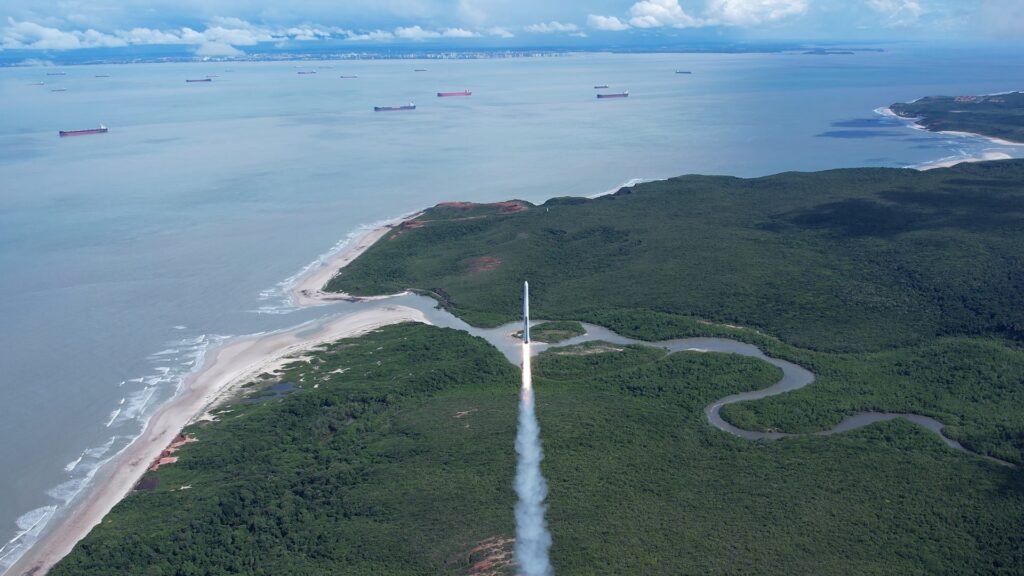WASHINGTON — Shares of South Korean rocket startup Innospace fell more than 20% on its first day listed on July 2.
Innospace’s shares closed at 34,450 won ($24.80) on the Korea Kosdaq Exchange on July 2, down 20.4 percent from the company’s initial public offering (IPO) price. The closing price gave the company a market capitalization of 323 billion won.
Innospace said in June that it would offer its shares to investors at 43,300 won a share, the upper end of the price range it offered to investors, due to strong interest in the IPO. The company raised 57.6 billion won through the IPO.
“With our successful entry into the KOSDAQ market today, we have set a new milestone as Korea’s first publicly listed private space launch vehicle company,” Innospace CEO Kim Soo-jeong said in a statement. “Innospace is focused on accelerating the development of our launch vehicles to achieve early market entry and provide stable and customized launch services, ultimately growing into a competitive company in the global space market.”
Innospace has not yet attempted an orbital launch. The company claims a successful suborbital launch from Brazil’s Alcantara Space Center in March 2023. The company did not disclose the maximum altitude of the Hanbit TLV rocket during that flight, but said before launch that the goal was to reach 80 kilometers.
The rocket was designed to test the technology for a series of small rockets that Innospace plans to develop. Hanbit Nano is designed to launch a payload of up to 90 kilograms into sun-synchronous orbit, while Hanbit Micro will launch a payload of 170 kilograms into the same orbit. A future Hanbit Mini is proposed to launch a payload of 1,300 kilograms into sun-synchronous orbit.
Innospace announced on May 30 that it would launch small satellites developed by two Brazilian organizations on a piggyback mission from Alcantara, with the first launch of Hanbit Nano scheduled for as early as the first half of 2025. Innospace also announced contracts on June 26 with Italian startup CShark to launch 35 satellites between 2025 and 2027, and with Thai startup EOS Orbit to launch one satellite in 2025.
Innospace’s spacecraft are unique in that they use hybrid engines that combine a solid fuel (in this case paraffin) and liquid oxygen. Hybrid engines have long been touted as combining the benefits of solid and liquid fuel engines, but have not been widely used in practice. Innospace has also developed liquid fuel engines that use methane and liquid oxygen for the upper stages of some of its spacecraft.
The rockets are scheduled to launch from Alcantara and Australia’s Arnhem Space Centre, the latter under a contract signed with the spaceport’s operator Equatorial Launch Australia in August 2023. Innospace said it is also interested in launching from Norway’s Andøya Space Centre.
Innospace said it would use the funds raised from the IPO to expand vehicle production, enable vehicle reusability and hire more employees.

